News
- 2025/05/26 About Ninokura
- 2024/12/01 Our business for this year has come to a close.
Information & Guidelines
The stately residence and the garden of the Oil King with a history of more than 100 years.
Our Residence Memorial Hall was established to showcase the legacy of the Nakano family, which dates back to the mid-Edo period. In particular, it highlights Kanichi Nakano, known as the 'Oil King of Japan' for his contributions to the Japanese economy through the oil industry, and Tadataro, a once-in-a-generation art and bonsai collector. The museum displays various materials, heirlooms, artworks, and a garden, all bearing witness to their significant impact.
This waka, penned by Kanichi in his final years, captures his inner feelings. Given that no subsequent poems were written, it can be regarded as his farewell poem.
(Nanigoto mo nashienū oi no mi ni shi areba, atsuki megumi ni ikade mukauimu)
(Paraphrase)
"I too have grown old and can no longer achieve as much. My success in oil extraction and the current state I'm in is not of my own doing, but rather the blessing of the deities and the support I've received from many people. How can I possibly repay such abundant grace?"
Calligraphy by: the late Itakura Kayū.
Although Kanichi was hailed as the 'Oil King of Japan,' he never indulged in extravagance. Instead, he generously donated his personal wealth to various causes. Particularly, he believed that education was indispensable for Japan's growth and served as the foundation of the nation. With this viewpoint, he established the Nakano Foundation to support the education of underprivileged younger generations and donated a significant portion of his wealth to it.
This commitment and vision were also embraced and continued by Chūtarō.
Despite being only 16 years apart in age, father and son Kan'ichi and Chutaro were at their wits' end. Despite their relentless drilling, no oil spurted from the well, and they felt their fate was sealed. One day, a vision of the Goddess Kannon appeared at Chutaro's bedside, advising him, "Drill this well once again." Heeding this divine message, they re-drilled the well and struck oil in commercial quantities, which paved the way for their subsequent prosperity. Even after achieving success, Kan'ichi and Chutaro remained grateful for the divine protection they had received. They built several temples within their property and collected numerous religious statues as a token of their gratitude and reverence.
Kan'ichi Nakano took over the family headship at the age of 14 after his father's passing. He inherited land that spanned approximately 500 chōbu (an old Japanese unit of area, approximately equivalent to 2.45 acres or 0.99 hectares per chōbu), served as the village head, and one can easily imagine the tremendous challenges he faced in leading his local community.
By chance, there was an outstanding physician in the neighboring area who opened a study center to provide education to the youth. Studying under this doctor greatly enhanced Kan'ichi's education and knowledge. He developed an interest in foreign countries and successfully introduced American equipment for oil drilling, which can be attributed to the education he received in his youth. The hardships he faced in his early years after the loss of his father and the excellent education he received later played a significant role in the establishment of the educational foundation.
The mansion, the various storehouses, the inner garden of the mansion, and the Izumien Garden were built over an extended period as a measure against unemployment at that time. Even after being referred to as the "Oil King of Japan", Kan'ichi and his family lived modestly. This strong intent is reflected in the simple construction of the family residence portion of the mansion. Throughout his life, he made substantial contributions by donating large amounts of money to educational endeavors, educational institutions, regional medical care, events, etc.
This life teaching is not only a message for the Nakano family but also for society and households in general.






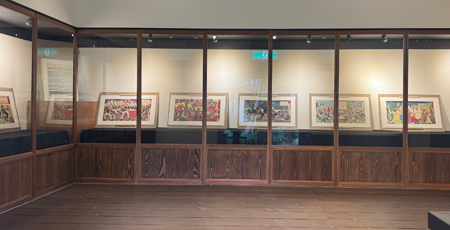
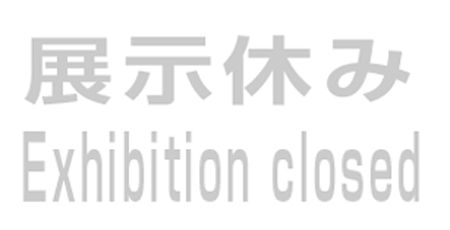
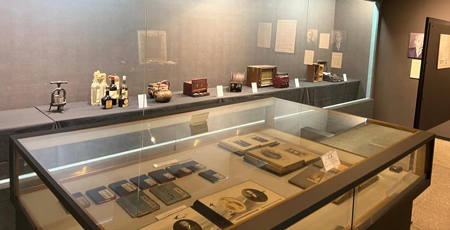


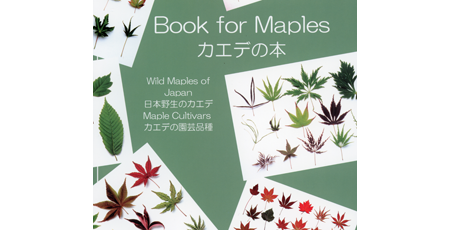






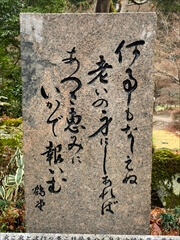

Our facility is always prepared to issue tickets promptly for groups arriving unexpectedly. Therefore, there is no need to make a reservation in advance. However, a Group Reservation Application Form PDF (to be printed and applied via FAX) is available, though it is not strictly necessary to use it.
If you are particularly concerned, or if your company requires formal procedures for group arrangements, please feel free to use it.